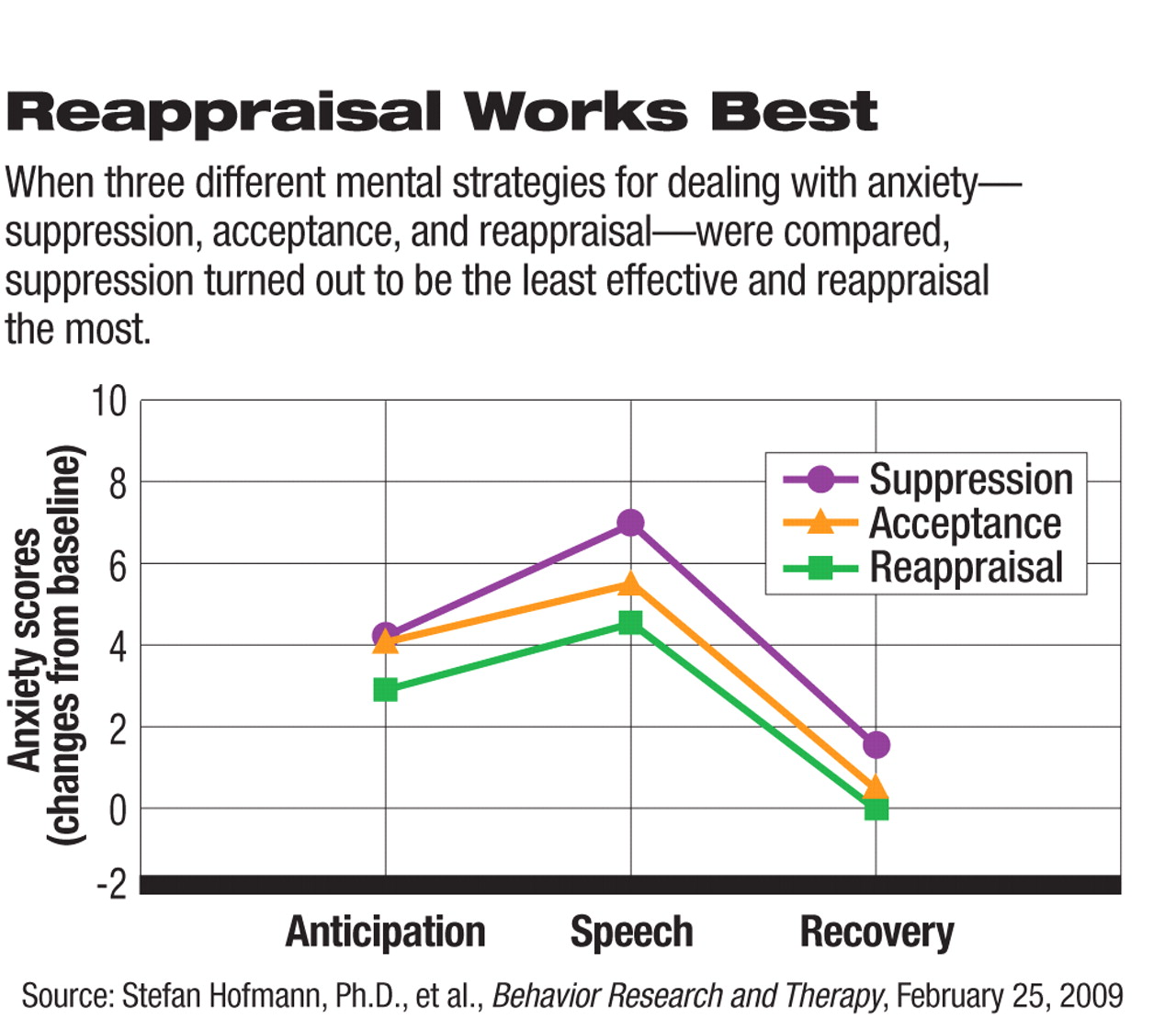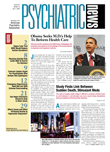What is the best mental strategy for countering negative thoughts or emotions?
Definitely not suppression—but very possibly reappraisal, acceptance, and focused distraction, two studies recently published in Behavior Research and Therapy suggest.
One study was headed by Stefan Hofmann, Ph.D., a professor of psychology at Boston University. Results were published online on February 25. The other study was headed by Sadia Najmi, Ph.D., of the Center for Understanding and Treating Anxiety at San Diego State University/University of California, San Diego. Results were published online on March 4.
In the study by Hofmann and colleagues, some 200 university volunteers served as subjects. They were separated into three groups. All subjects were told that they had to give an impromptu speech about a controversial subject before a video camera, but each group was instructed to handle the anxiety about giving the speech in a different manner. Individuals in the first group were told to suppress their anxiety—that is, try to not let it show. Individuals in the second group were told to reappraise their anxiety realistically, for example, keep in mind that this was only an experiment and that there would be no negative consequences if they performed poorly. Individuals in the third group were told to accept their anxiety—that is, to feel their anxiety fully and not try to change it in any way.
Each subject was then evaluated for subjective feelings of anxiety as well as for a physiological reaction to anxiety (heart rate) before, during, and after giving a speech.
None of the three strategies completely eradicated anxiety. However, reappraisal and acceptance were more effective than suppression, and reappraisal seemed to be especially effective.
In the study by Najmi and her colleagues, 20 persons diagnosed with obsessive-compulsive disorder (OCD) and 20 control subjects without a mental disorder were asked to think a particular thought that was highly repugnant to them. After that, each subject was instructed to deal with the thought in one of three ways—suppressing it, accepting it, or focusing on another thought (focused distraction). Subjects were evaluated on how successful they were at dealing with the thought in the three different ways.
No differential effect for the three tasks in the control group was found, but one was found in the OCD group: Suppression was not effective, whereas acceptance and focused distraction were comparably so.
What are the implications of the findings from these two studies for psychiatrists? It is reasonable to assume that reappraisal and acceptance, but especially reappraisal, might be effective for countering unwanted thoughts and emotions associated with psychiatric disorders, Hofmann told Psychiatric News.
“We know that cognitive-behavioral therapy [CBT], which uses reappraisal strategies, is also an effective intervention for depression and substance use disorder. However, little is known about the efficacy of acceptance-based treatments.... Mindfulness, an acceptance-based strategy, seems to show some benefit for treating depression, but the treatment protocols that utilize mindfulness also include reappraisal techniques such as mindfulness-based CBT. We clearly need more tightly controlled treatment studies ... to clarify these issues.”
The same is the case for focused distraction, he added. As far as he knows, no studies have yet compared focused distraction with reappraisal and acceptance to see which one might be the most effective in countering unwanted thoughts and emotions. Najmi agreed.
The study by the Hofmann group was funded by the National Institute of Mental Health (NIMH); the study by the Najmi group by NIMH, the Sackler Foundation, and the Ditmars Prize for Research.
Abstracts of “How to Handle Anxiety: The Effects of Reappraisal, Acceptance, and Suppression Strategies on Anxious Arousal” and “Managing Unwanted Intrusive Thoughts in Obsessive-Compulsive Disorder: Relative Effectiveness of Suppression, Focused Distraction, and Acceptance” can be accessed at<www.sciencedirect.com> under “Browse by title” by clicking on “B,”“ Behavior Research and Therapy,” and “Articles in press.” ▪

